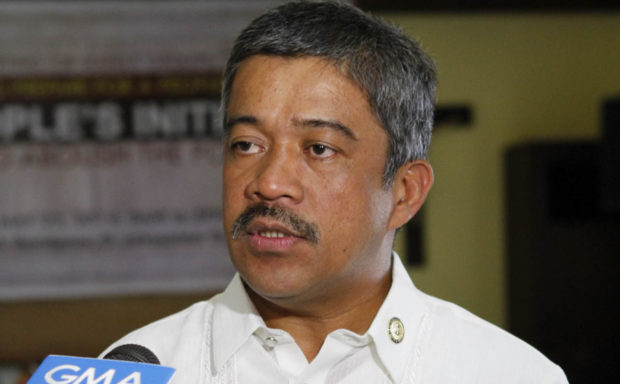National ID system: Zarate sees threats to sovereignty, security
A lawmaker warned on Sunday that the National Identification System Bill being fast-tracked in the Senate would not only violate the people’s right to privacy but also threaten the country’s sovereignty and security.
“Aside from the fact that this is an invasion of our people’s privacy this measure may have some very serious sovereignty and security implications,” Bayan Muna Rep. Carlos Isagani Zarate said in a statement.
He said that under proposed legislation, the data to be used under the national ID system would be deposited with the Philippine Statistics Authority (PSA) which has entered into a “questionable contract with a US-based firm called Unisys,”
Zarate earlier filed House Resolution 592 to inquire into the P1.59-billion, 12-year contract which gives Unisys control over the PSA’s civil registry system from March 2017 to 2029, which is covered by the Civil Registry System-Information Technology Project Phase 2 (ITCP2).
Unisys also won phase 1 of the project under the now-defunct National Statistics Office (NSO).
Article continues after this advertisementZarate said that during phase 1, Unisys committed gross violations of the contract, citing reports of the Commission on Audit for 2005 and 2015.
Article continues after this advertisementZarate warned that with “Unisys having unbridled control” of the civil registry system, the US government could easily have “undiminished access to all civil documents of more than 100 million Filipinos.”
Unisys was the lone bidder for the project’s phase 2 launched under the public-private partnership (PPP) program under the Aquino administration.
Under the agreement, the firm was tasked to finance, develop and operate an upgraded civil registry system with higher specifications than the current system.
According to its website, Unisys is a global information technology company that provides computer programming and information technology (IT) services with many of the world’s largest companies and government organizations.
Another foreign company, PricewaterhouseCoopers, supervises the PSA project.
Zarate raised the possibility that having foreign companies controlling the country’s civil registry system “would permit them to collect and retrieve stockpile of information about Filipino citizens and share the same with their other clients, such as various branches of the US armed services and possibly, US intelligence agencies.”
Last March 14, the Senate approved on second reading a proposed measure which seeks integrate multiple government IDs by establishing a single national ID system to be known as the Philippine Identification System or PhilSys.
A similar bill was passed on third and final reading at the House of Representatives in September last year. /cbb
